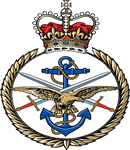Commemorated: | |||
| 1. Memorial: | Neuve-Chapelle Memorial | Panel 12. Neuve Chappelle | |
| 2. Book: | The (1921) Masonic Roll of Honour 1914-1918 | Pg.130 | |
| 3. Memorial: | The (1940) Scroll - WW1 Roll of Honour | 23B GQS | |
Awards & Titles: | |||
Family :
Son of the late Surgeon Maj. Edwin Field Nelson husband of Irene Nelson of 16 The Close Norwich.Service Life:
Campaigns:
- The Second Anglo-Boer War 1899-1902, South Africa.
- The First World War 1914-1918, World-wide.
| Unit / Ship / Est.: 69th Punjabis |
| Action : The Battle of Loos and associated actions |
"The Battle of Loos (25 September to 18 October 1915) was the major battle on the Western Front in 1915, surpassing in every respect all that had gone before in terms of numbers of men and materiel committed to battle. The preliminary bombardment was the most violent to date and the battle was charaterised by the committment of Regular and Territorial battalions on a large scale, in which the Territorials performed just as well as the Regulars. As the battles on the Western Front in 1915 increased in size and violence, so the casualties increased in proportion: Neuve Chapelle 12,000, Aubers Ridge/Festubert 29,000 , Loos 60,000. 1916 was to take the casualty cost to another level. Loos was intended as a minor role in support of French efforts around Arras but circumstances reduced the French effort. It marked the first use of poison gas by the British. Once the initial assualt had failed the battle continued in a series of actions mostly focused on the northern sector around the tactically important Hohenzollern Redoubt."
Detail :
Official History Military Operations France and Belgium 1915 Vol II Sepoys in the Trenches-Corrigan
NELSON, Craig, Captain, 69th Punjabis. The Battle of Loos marked the first use of poison gas by the British Army. The battle was fought over the industrial coal mining villages north of Lens and started on 25th September 1915. In order to unbalance the Germans and to prevent them from rapidly moving reserves from quiet sectors a series of feint attacks were staged. One of these was north of Neuve Chapelle at Pietre and it was there that Craig NELSON lost his life. The attack was delivered by the Indian Corps which included the Bareilly Brigade of which the 69th Punjabis were part. The attack started with an indifferent smoke and gas screen which in fact caused the assaulting brigades more problems than it did to the German defenders. The Garhwal Brigade, of which the 1/3 Londons were part, advanced to find that the wire was not cut and it sustained large casualties as men desperately sought a way through. Eventually the Garhwal Brigade attach stalled in front of the German trenches and made no significant progress. On their flank the Bareilly Brigade accompanied by the 2/8 Gurkha Rifles made progress but found themselves isolated and susceptible to German counter attack which soon developed. The mud and the congested British communication trenches prevented support reaching the Bareilly Brigade and under severe pressure from German troops armed with much superior grenades, it was forced to return to its original front line. The feint was effectively over and probably had little impact on events to the south at Loos. The cost of the Pietre action was 107 officers, 1172 British other ranks and 1788 Indian other ranks. Craig Nelson was killed in the attack. One source tells us ?The 69th Punjabis started the day with 11 British officers and ended it with three?. Of the others five were killed and three wounded.
See also: Our Heroes in Dublin.
Masonic :
| Type | Lodge Name and No. | Province/District : |
|---|---|---|
| Mother : | Beauchamp No. 1422 E.C. | West Kent |
Initiated | Passed | Raised |
17th October 1911 | 2nd January 1912 | 6th February 1912 |
Source :
The project globally acknowledges the following as sources of information for research across the whole database:
- The Commonwealth War Graves Commission
- The (UK) National Archives
- Ancestry.co.uk - Genealogy, Family Trees & Family History online
- ugle.org.uk - The records of the United Grand Lodge of England including the Library and Museum of Freemasonry
Additional Source:
- Founder Researchers : Paul Masters & Mike McCarthy
- Researcher : Bruce Littley

